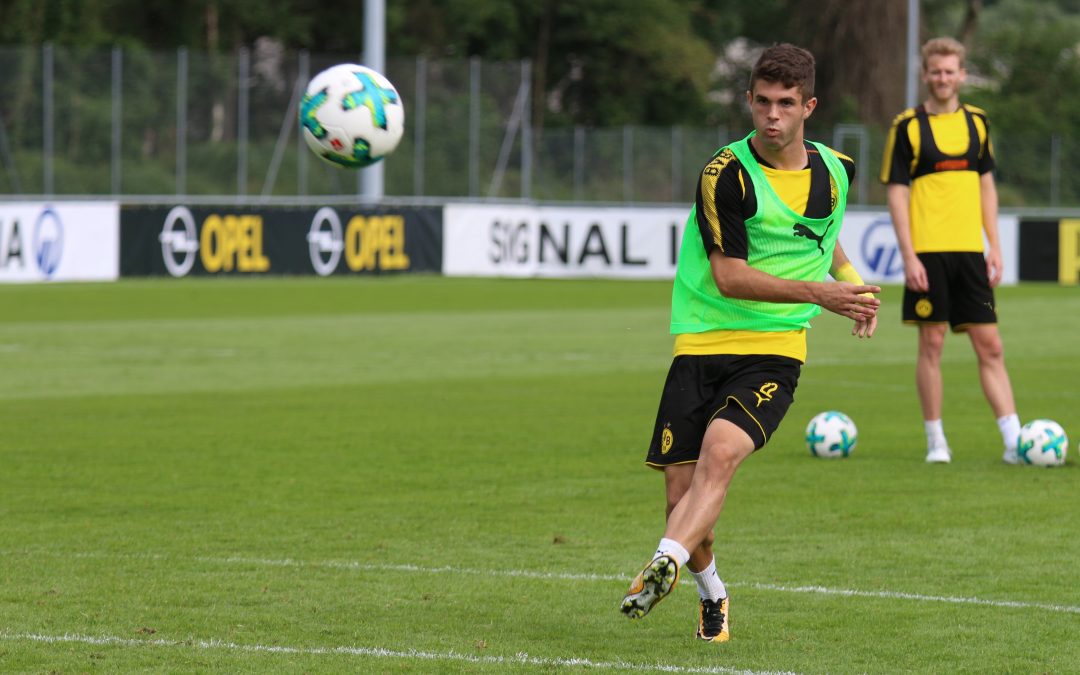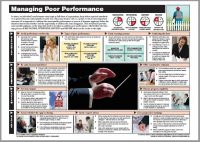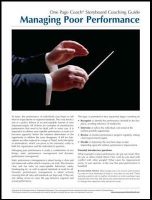
by Gary Reinecke | Aug 13, 2018 | Church Multiplication, Coach Training, Disciplemaking |
It’s hard to believe, but it’s true…we’re three weeks (21 days!) away from our Sept 3rd application deadline for our fall Collectives.
Learn how Collectives bring out the best in leaders, from Gary Reinecke – watch video.
Learn three benefits to the Church Planting Coach Collective, from Daniel B – watch video.
As I’m writing this email, we are praying for the right people that will benefit most from the Collective experience. Have you been waiting to apply for the Developing Coaching Excellence Collective & Church Planting Coach Collective?
Now is the time!
If you’ve missed my last emails on our Collectives, here’s a quick recap:
- They are comprised of small groups limited to 15 for an optimal learning experience
- You’ll receive 4 group sessions (60-minutes each) of group coaching plus 6 hours of customized, individual coach mentoring to help you fine-tune your coaching skills.
- You’ll gain a community of close friends and mentors in ministry that will be there to support you as you grow your coaching effectiveness.
Now for the best part….I have a discount for you:
- Apply by August 20th with promo code COLL18 and get $50 off
Ready to apply?
Click here to apply for the Developing Coaching Excellence Collective.
Click here to apply for the Church Planting Coaching Collective.
Have questions? Simply click here or give me a call at (951) 473-4481.
Feel free to forward this email along to any church planters, leaders who coach disciplemakers and church planting/multiplication leaders and entrepreneurs who use a coach approach that should know about this so that they can get the discount code.
Hope to see you this September!

by Gary Reinecke | Aug 3, 2018 | Church Multiplication, Coach Training, Disciplemaking, Leader Development, Personal Development |
The impact of a coach on a leader or team is tremendous. It can make the difference between winning and losing. Think Steve Kerr and the Golden State Warriors.
It is the same in disciplemaking and church planting. A leader with the right approach, who has developed the necessary skills and has the temperament to coach people to take action, has a tremendous advantage.
A group I worked with recently has a number of pastors and church planters learning the art of coaching. One leader shared the dramatic change in people when he has taken the coach approach. In several conversations when he was asked for advice, he turned to the individual and challenged them to reflect and brainstorm solutions for themselves. In just about every case, the people have responded enthusiastically and taken responsibility for their actions. This is the power of a coach approach.
Making this change is significant, strategic and sacrificial. Here are five shifts that occur when a leader moves from being indispensable to an empowering leader:
- Shift from being viewed as the expert vs. viewing the other person as the expert
- Shift from being the center of the conversation vs. supporting the other person
- Shift from being the advice-giver vs. listener
- Shift from being the creator of the agenda vs.hold the other person accountable for the agenda
- Shift from being responsible to take action vs. empower the other person to take action
What could be the impact if you were to make these shifts?
- You will help people think for themselves, foster a high sense of ownership and take action!.
- You will expand your circle of influence so that you are not the only catalyst to lead an initiative, implement change or create a new culture.
- You will accelerate the process of:
- Disciplemaking
- Leadership development
- Church Planting

by Gary Reinecke | Jul 27, 2018 | Church Multiplication, Coach Training, Disciplemaking |
The power of the image above is the strength of the individual parts that make the whole. Imagine if one of the rocks was slightly tilted at an angle that jeopardized the integrity of the tear-drop? This disruption would cause it to implode.
Similarily, the three strategies below are integrated into the Developing Coaching Excellence Collective. You will discover the value of the learning community as you reflect on your coach development, receive feedback from a coach mentor and learn with, and from other coaches. It is also a great opportunity to connect with other leaders from around the world with a similar vision to catalyze disciplemaking and church planting movements.
Strategy #1: Work with a coach mentor
Strategy #2: Receive feedback
Strategy #3: Learn with and from other coaches
InFocus is excited to present an opportunity to sharpen your coaching effectiveness. The launch of the first Developing Coaching Excellence Collective is September 2018. This Collective is designed to assist leaders who coach disciplemakers and church planting/multiplication leaders by creating a compelling and fruitful environment for you to grow your coaching muscle.
Why do I need a Church Planting Collective?
- Relationally: Stay on-mission through the support of the Collective Coaching community & 1-1 coaching. The reality is, most leaders who are catalyzing disciplemaking & church planting movements using a coach approach, feel isolated. One of the bi-products of the Collective is the support that participant’s receive.
- Strategically: Reproduce disciples, leaders & churches into the third & fourth generation. One of the challenges for leaders using a coach approach who have a vision for multiplication, is moving beyond growth by addition to multiplication. The strategic shift involved is supported by the work of the Collective.
Who is a good Collective participant?
- Humility – leaders who are open to knew ideas
- Hunger- leaders who are motivated to grow in their understanding and practice of coaching
- Emotional Intelligence – leaders with a high level of self-awareness.
How the Developing Coaching Excellence Collective works?
LEARNING COMMUNITY
- 3-12 participants
- Meet four (4) times
- 60-minutes each
INDIVIDUAL COACHING
- 1-1
- Meet six (6) sessions
- 60-minutes each
What will be required?
Learning is maximized while you coach disciplemaking & church planting/multiplication leaders. The power of the Collective is that you will strengthen your coaching muscle as you are in the process of coaching leaders. The learning that you glean from the interactions in the learning community & 1-1 coaching can be applied immediately into the coaching relationships you are actively engaged.
Here are some of the resources that we will be using in the Collective:
- Developing Coaching Excellence Handbook
- Online 360-Degree Coach Assessment
- Online Coaching tool
What are the next steps?
Register here
- $997 per participant + group discounts available upon request
Schedule first coach appointment
- You will be contacted to schedule the first coach appointment with your coach mentor.
Block-out four group sessions @ 8:30am PST
- Session #1: September 10, 2018
- Session #2: October 8, 2018
- Session #3: November 5, 2018
- Session #4: December 3, 2018
It would be a privilege to have you join the Developing Coaching Excellence Collective. Sign-ups will continue through August and registration closes on September 1.
Click here if you have questions or are interested in more information.

by Gary Reinecke | Jul 22, 2018 | Church Multiplication, Coach Training, Disciplemaking, Leader Development |
- Strategy #1: Work with a coach mentor
- Strategy #2: Receive feedback
- Strategy #3: Learn with and from other coaches
What do you need to do, to take your coaching to the next level?
Learning Communities provide a great opportunity for leaders to learn with and from other coaches-in-training.
Christian Pulisic is a 19-year-old American soccer player that has made a name for himself with the German “Bundesliga” club – Borussia Dortmund. At a very early age, he realized the impact of being around other players and coaches who were more experienced, more accomplished and more motivated to succeed. Dortmund is known as a club that develops players, a sort of farm system or learning community to help players progress and take their game to the next level!
When leaders participate in a “learning community” to develop their coaching skills, mutual learning occurs when three virtues are shared with participants:
- Humility – leaders who are open to knew ideas
- Hunger- leaders who are motivated to grow in their understanding and practice of coaching
- Emotional Intelligence – leaders with a high level of self-awareness.
How can you truly become a world-class coach?
In 2007 a member of my board, Linda Miller asked me about certification. For those who don’t know, Linda is a pioneer in the coaching industry. As a consulting partner, trainer, and team facilitator with the Ken Blanchard Organization she has coached leaders around the world. Linda helped establish the International Coach Federation to raise the caliber of coaching worldwide. When she asked me that question, it caused me to think.
As a result, I started my journey to develop my coaching skills. I’m not suggesting that people in ministry need certification. However, I am encouraging you as a leader who empowers disciplemakers, leaders and church planters, to take your development seriously. If you are satisfied with the results you are getting and seeing disciples, leaders and church planters reproduce into the third and fourth generation – by all means, keep doing what you are doing; if not, you might want to consider raising your coaching game!
When should you take the next step in your development as a coach?
InFocus is excited to present an opportunity to sharpen your coaching effectiveness. The launch of the first Developing Coaching Excellence Collective is September 2018. This Collective is designed to assist leaders who coach disciplemakers and church planting/multiplication leaders. Last week I introduced my co-facilitator, Mukesh Azad, who is an Indian living in Delhi and leading a Business as Mission initiative. He brings a refreshing view how his coaching business serves as a platform to enter communities while incarnating the gospel and being on-mission. The more I witness the work of God around the world, the more I see God mobilizing people who are working in the marketplace use their gifts while making disciples and planting churches. Read more about Mukesh and his expertise at the bottom of this page.
I would consider it a privilege if you were able to join us. Click here if you have questions or are interested in more information.

by Gary Reinecke | Jul 13, 2018 | Church Multiplication, Coach Training, Disciplemaking, Leader Development |
Do you remember your first shot? You were reassured; “it will only sting a little bit”. Feedback is sometimes like that.
Here are three strategies to develop your coaching muscle:
STRATEGY #1: Work with a coach mentor
STRATEGY #2: Ask For & Receive Feedback
STRATEGY #3: Learn with and from other coaches
I’ve discovered that the feedback I receive is mostly appreciated – usually helpful.
I remember the feedback on my coaching through a formal, written assessment – from two experienced assessors. The introduction to the report was brutal. So harsh, that I put the report down. Weeks later when I picked-up the document again; I found their recommendations extremely helpful. However, I had some questions.
During my internal struggle to gain perspective, I missed the window of opportunity for inquiry to engage the assessors. Lesson learned! If you are going to ask for feedback, be open to criticism.
Be prepared to accept what is genuinely helpful and reject feedback that does not accurately represent your experience and reality. Incidentally, this is a skill called “Self-Assessing” that is measured in the Online 360-degree Coach Assessment that I mention below.
There exists countless ways to receive feedback on your coaching. You can receive informal or formal feedback. In person, real-time or written. I have used and found each mode helpful.
I tend to lean on two types of feedback:
Small group, triads and 1-1 coaching sessions provide an opportunity for real-time feedback. The “fish-bowl” of group coaching gives participants opportunities to practice their coaching with timely feedback from individual of the group as well as a competent assessor. In addition, when asked in a 1-1 coaching session, feedback can requested to give you a sense of how you are helping the other person through listening and asking questions (for instance).
Using a 90-degree, 180 or Online 360-degree Coach Assessment; coaches solicit feedback from people they have coached. Multiple people are asked to assess the leader using the Online Coach Assessment 360-degree how she/he demonstrated the essential skills of coaching. The result is a clarifying experience.
The combination of soft + hard data; group + individual; real-time + deferred; makes for a robust experience to develop your coaching excellence.
InFocus is excited to give you an opportunity to sharpen your coaching effectiveness. The launch of the first Developing Coaching Excellence Collective is September 2018. This is uniquely designed to assist leaders who coach disciplemakers and church planter/multiplication leaders.
Since certification is a priority for some, the 10 hours of the Developing Coaching Excellence Collective are applicable to the International Coach Federation, Coach Mentor Requirement for the:
- Associate Certified Coach – ACC
- Professional Certified Coach – PCC
- Master Certified Coach – MCC.
If this is a need you have and would like more information, please contact me direct – click InFocus.
Here are a couple of related resources:

MANAGING POOR PERFORMANCE STORYBOARD

MANAGING POOR PERFORMANCE: COACHING GUIDE WITH STORYBOARD

POOR PERFORMANCE HANDLING STYLE MINI-PROFILE

MANAGEMENT EFFECTIVENESS PROFILE – SELF

MANAGEMENT EFFECTIVENESS PROFILE – 180

MANAGEMENT EFFECTIVENESS PROFILE – 360








